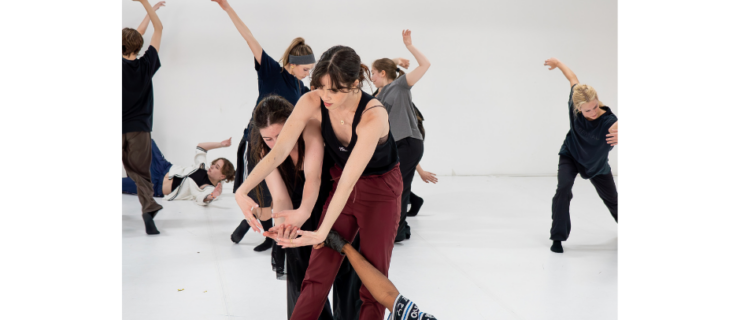Advice for Dancers
What’s safe to tweet about? I heard that New York City Ballet is negotiating a social media policy with AGMA. That’s my union! Do I need to worry?
Tweeting Dance
Brooklyn, NY
Actually, the policy will only apply to NYCB. However, other companies may follow their lead down the road. The fact is, a lot of people have been caught off guard by social networking, including company management. Many don’t use Twitter and find it confusing. On the plus side, social media has opened up a new way to communicate with a much larger—and younger—audience. Professionals can give dance fans an inside look into their daily lives. Their tweets may even encourage more people to buy tickets to upcoming performances. I know of one company that’s trying to take advantage of this by assigning a corps member to tweet during their tours. Yet when dancers tweet about personal information like another performer’s injury, or casting changes, it invades that dancer’s privacy (not to mention breaking federal health disclosure laws) and could possibly hurt audience attendance. According to Alan Gordon, the national executive director of the American Guild of Musical Artists (AGMA), a union-negotiated policy will let dancers tweet about anything work-related that’s already allowed by the National Labor Relations Act, including wages and terms and conditions of employment. AGMA would never agree to a more restrictive policy. However, the union would agree to prohibit certain things, such as publicizing the private matters mentioned above, and require dancers to make it clear that their tweets reflect their individual opinion, not that of their employer. Still, Gordon advises dancers to be careful. While bad-mouthing your boss may not be illegal, it could lead to serious repercussions in terms of your career. The bottom line: You don’t need to worry about tweeting so long as you’re responsible and appropriate. Organizations that would like more information about establishing a social media policy can check out Dance/USA’s e-journal on the topic. You might also be interested in reading what both Dance Magazine (@Dance_Magazine) and editor in chief Wendy Perron (@wperrondancemag) tweet.
I feel like the best male roles go to dancers who can turn, partner, and have a great jump. I’ve worked on my technique and partnering in class and strength-train at the gym. Everything has improved except my jump. What else can I do?
Jumping Jack
San Francisco, CA
You can’t fix something until you know why it’s a problem. Right now, you’re working in the dark. Dance medicine specialists tell me that several factors affect your jump. For example, overweight dancers can be hindered by lifting an excessive load in the air, whereas those who are underweight may have lost precious muscle mass. In both cases, moving towards a healthier middle ground for weight is the answer. Then there’s the question of the actual jump itself. Does the difficulty lie in the takeoff or the landing? Pushing off requires speed, timing, and motor recruitment of the concentric muscles that need to shorten quickly for an explosive jump. Landing, on the other hand, taps into the eccentric muscles, which lengthen as they decelerate and contract into plié. A physical therapist can determine which set of muscles requires strengthening, then give you exercises and cross-training activities to correct the deficit. Some athletes use whole-body vibration platforms as an additional tool. When muscles are shaken while exercising, it activates neighboring muscle fibers and builds mass faster. A recent study found that using a vibrating disc for five minutes twice a week for six weeks significantly increased the height of vertical jumps in dancers. Not bad for a measly 10 minutes a week.
Help! Ever since I began to get good parts, my dream of becoming a soloist has turned into a nightmare. My director is supportive, but the dancers are killing me. I sort of get why the older ones might be jealous and make snide remarks or bump into me during rehearsals. But what hurts is that my friends treat me differently. I feel their eyes staring at me, just hoping I’ll mess up. I dread going to work.
Lauren
NYC
I’m so sorry. Unfortunately, your story is not uncommon in the competitive dance world. I’ve even heard about pointe shoes and costumes mysteriously disappearing. Yet I think most dancers have been on both sides of the fence. No one knows when they will be singled out by an artistic director, so it can be hard to appreciate the good fortune of others. (That’s one thing the movie Black Swan got right.) Still, no matter how insecure your colleagues may feel, that’s no excuse for them to be mean. The most effective way to deal with this situation is to focus your attention on dancing and on the friends who treat you well. I’m sure there are at least a few. Look confident and smile, while disregarding anyone who’s sending you bad vibes. Once they see their behavior can’t get to you, they’ll back off. No one likes to be ignored.
Former New York City Ballet dancer Linda Hamilton, Ph.D., is a psychologist in private practice, the author of
Advice for Dancers (Jossey-Bass), and co-author of The Dancer’s Way: The New York City Ballet Guide to Mind, Body and Nutrition (St. Martin’s Griffin). Her website is www.wellness4performers.com.




